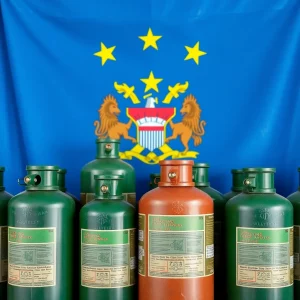Shreveport’s Police Headquarters Sparks Debate Over Health and Safety
In a lively discussion that captured the attention of Shreveport residents, city council members raised significant concerns about the conditions at the police department headquarters. During a board meeting on September 24, council members, alongside community members, voiced complaints about issues like mold and mildew that have plagued the facility. However, the mayor has shown resistance to declaring an emergency, choosing instead to address the situation differently.
Council’s Concerns About Conditions
Among those expressing dissatisfaction was community member Sammy Mears, who boldly stated, “I will not allow the police to be working in a nasty, filthy, disgusting place.” His passionate plea reflected a growing frustration with the state of the building that houses many of Shreveport’s law enforcement officers.
In response to the rising public concern, Mayor Tom Arceneaux sent a letter prior to the meeting, reiterating his stance that declaring a state of emergency wouldn’t lead to genuine improvements. According to the mayor, “the administration has reviewed applicable statutes to see if a declaration of emergency would make any resources immediately available,” and found nothing that could further assist the police department beyond already available resources.
The Mold vs. Mildew Debate
A point of contention arose during the discussions regarding whether the issues in the police headquarters should be termed mildew instead of mold. Councilman James Green took a firm stance against the fine distinction made by the mayor. “If mildew is not bad, then I would just suggest maybe you get a bucket of it and put it in your office,” he challenged, hinting at the absurdity of downplaying the matter considering the implications for first responders.
Moving Forward: Mayor’s Plan
Despite the pushback, Arceneaux assured council members that he is indeed looking to tackle the ongoing issues. He shared plans involving the decentralization of police operations across various facilities and buildings, a process he noted has not yet begun due to ongoing construction tasks. Furthermore, he indicated a willingness to invest in significant repairs that would make the current headquarters more livable for officers.
Additionally, the mayor intends to explore potential sites for staff relocation during the anticipated reconstruction of the headquarters. However, Arceneaux was clear that the scale of relocating nearly 470 police personnel from the Gardner Building complex is no small feat, representing around 20% of the city’s total workforce. “Moving that many employees to temporary and permanent alternate locations is a monumental task,” the mayor acknowledged in his correspondence.
A Balancing Act
As discussions continue, Shreveport residents are left wondering how their city will balance the need for urgent repairs and the logistics of relocating personnel with the essential duties of law enforcement. The conversation surrounding the police headquarters is likely to persist as both council members and citizens advocate for a safer and more sustainable working environment for those who keep their community secure.
Shreveport is undoubtedly facing a challenge that will require cooperation, open communication, and a commitment to the well-being of those serving on the front lines.







